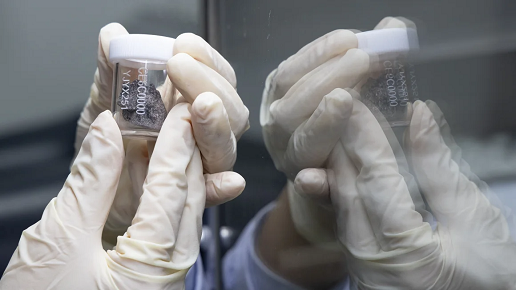The Centers for Disease Control (CDC) announced on the 21st that a congenital syphilis case was confirmed in a two-month-old baby. The baby was hospitalized in early June 2024 with a fever of 40 degrees Celsius. Doctors found skin rashes, pigmentation, and abnormal long bones, leading to a diagnosis of congenital syphilis. Further tests revealed that both parents were also infected, and all three are currently undergoing treatment. The mother had tested negative for syphilis during her 12th and 32nd-week prenatal checkups, suggesting infection occurred from unsafe sex between the 32nd week and delivery.

In recent years, cases of syphilis and gonorrhea have shown an upward trend. (Photo from Pexels)
Internationally, syphilis and gonorrhea cases have been on the rise. In the US, for example, congenital syphilis cases exceeded 3,700 in 2022, a 755% increase from the previous year. According to CDC data, Taiwan reported 9,941 new syphilis cases and 8,257 new gonorrhea cases in 2023, primarily due to unsafe sex practices. Compared to 2022, syphilis cases increased by 2%, and gonorrhea cases by 3%. The most significant increases were among the 15-24 age group, with syphilis cases rising by 19% and gonorrhea cases by 7%. Although female infection cases are relatively lower, the increase is more pronounced than in males, with female syphilis cases increasing by 21% and female gonorrhea cases by 8%.
The CDC explained that syphilis and gonorrhea are sexually transmitted diseases (STDs) spread through skin, mucous membranes, and blood. Common symptoms of syphilis include painless ulcers and rashes, with untreated late-stage syphilis leading to severe complications. Pregnant women with untreated syphilis can transmit the disease to the fetus, resulting in fetal death or congenital syphilis. Symptoms of gonorrhea include purulent urethritis and painful urination, with many women showing no obvious symptoms. Without timely treatment, gonorrhea can lead to infertility and other infections.

Pregnant women should undergo regular prenatal check-ups to reduce the risk of congenital syphilis. (Photo from Pexels)
The CDC emphasized that while syphilis and gonorrhea are treatable, there is no lifelong immunity. Preventing STDs involves using condoms correctly, regular screenings, and early treatment for those with unsafe sexual practices. Pregnant women should have regular prenatal checkups. Once diagnosed, patients should inform their partners to undergo screening and treatment to avoid reinfection.
The CDC urges people to seek medical attention if they suspect symptoms or potential STDs and to consult the CDC's global information network for related health education and services. For more information, call the toll-free epidemic prevention hotline at 1922 (or 0800-001922).







